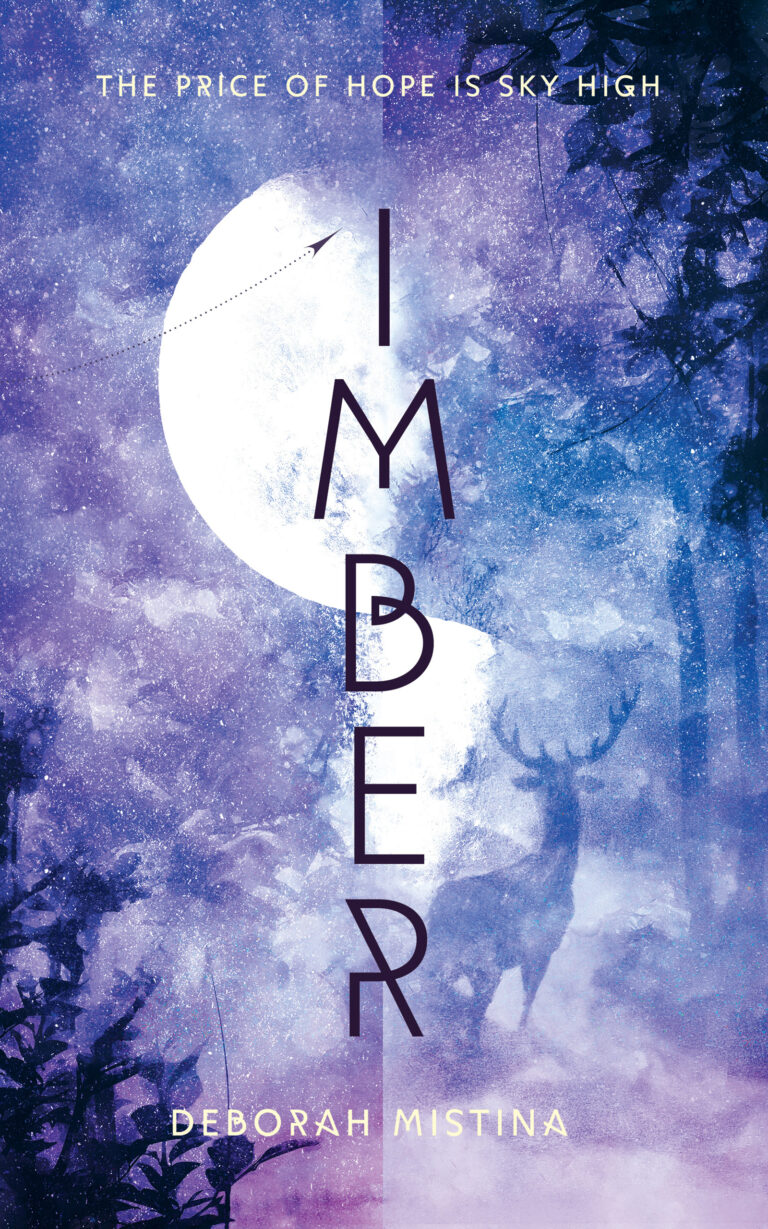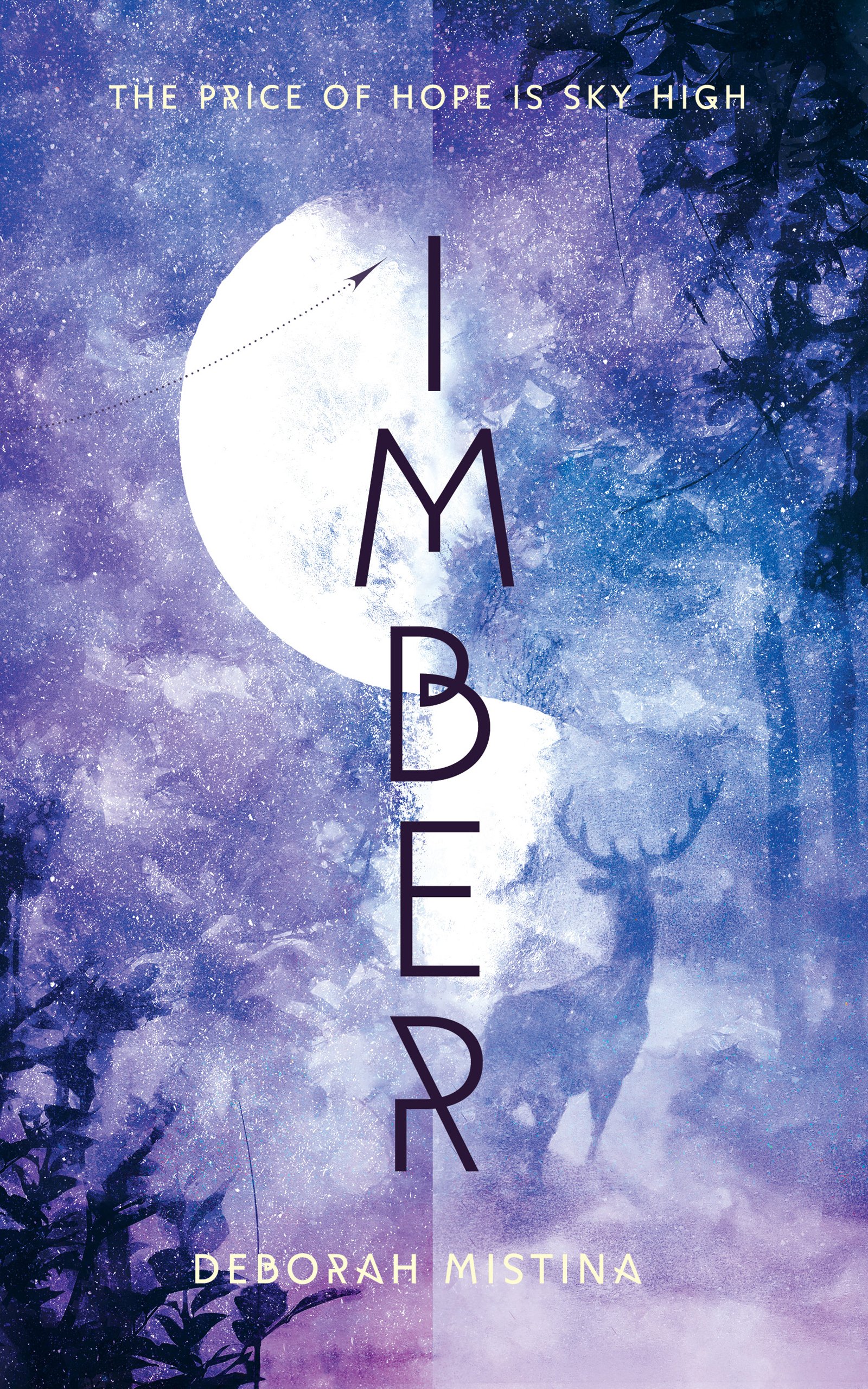With the planet wracked by climate disasters, most of the human population has moved underground. There, people live a surprisingly comfortable life, with plenty of modern amenities and food from replication machines. But on the surface, a few hardy souls—including Violet Murphy and her horse, Firestorm—still live the simple lives they inherited, farming and caring for the planet. Little do they know that Project Pioneer, a shadowy government initiative, while soon uproot all their lives.
Deborah Mistina‘s IMBER is very clear about its priorities. Opening on the Murphy farm, where Violet tends to her various crops and enjoys the companionship of her horse, IMBER does an excellent job of imagining an ideal human existence: simple, difficult in some ways, but characterized by appreciation of the past and respect for the natural world. This thematic core flows organically with the inciting plot development: the protagonists begin to believe that they can feel, or hear, the interior lives of animals around them. The themes are also beautifully served by the rich descriptive language, especially where the natural world is invoked with both splendor and specificity (“Fertile patches of sedge and wild rye mingled with a profusion of bluebells, mustard-yellow coneflowers, blood-red lobelia, and white buttercups”), or rendered in crisp sensory detail (the smell of “damp moss and the sharp, terpenoid scent of evergreens”). The text also deploys a dry and effective sense of humor, especially in descriptions like this: “Everyone said that Jack looked like he worked in business. He was never quite sure if it was a compliment.” Moments like these offer some relief from both the rich, heavy nature scenes and the grim plot.
However, despite this clarity of vision and strong prose style, IMBER needs more structural work to succeed. The motivating conceit of the story—that these characters may be developing telepathic connections to animals—is never fully fleshed out. In fact, it’s surprisingly absent for the majority of the text. An entire novel could follow this journey, in which ordinary people begin to explore their extraordinary ability; but in IMBER, the idea crops up only in a handful of scenes and has very little to do with the rest of the plot. The meat of the story involves investigating the government’s plans for humanity, but this plotline is also unfulfilled. On the one hand, the underlying worldbuilding is a little too flimsy to support the plot. IMBER’s society has nearly limitless food replicators, so why is the government conducting itself with such a scarcity mindset? What are the other implications of such technology for social structures?
On the other hand, plotlines and character arcs are introduced with no resolution. Much is made of a government scientist with misgivings about her work, but she disappears into the background as events transpire and her misgivings apparently make no difference in how the narrative plays out. The president directing these shadowy government operations is thinly drawn to start with; by the last quarter of the text, he becomes a cartoonishly evil figure, with very little explanation of how or why. IMBER would likely be stronger if it more tightly wove the two main plot threads together—or dropped one entirely, focusing on the animal telepathy or the government conspiracy ideas alone.
The loose ends and unnecessary material trickle down from this central struggle. The main cast, for instance, showcases four protagonists, but two of them are mostly useless (Jack especially, serving as nothing but a romantic interest for Violet). Violet and Mason are the more memorable heroes in the bunch, and they’d be more than enough to tackle the entire plot themselves.
The text itself could also use some trimming. Despite its good descriptive language, that strength is often misused in overlong descriptions of the clothes and home furnishings of the characters, or point-by-point remarks on the foodstuffs being consumed. At its worst, the text falls into unnecessary exposition (more than once, ink is wasted on descriptions of “DCs,” which are obvious mobile phone analogues in need of no description). None of this is singularly egregious, but, in aggregate, it both tries a reader’s patience and detracts from the novel’s real strengths.
IMBER currently holds the kernel of a beautiful and effective story about humanity, conservation, agency, and dignity. As it stands, however, it still needs significant high-level editing to let that kernel flourish.
Though well-imagined and well-voiced, Deborah Mistina’s IMBER doesn’t quite cohere as well as it should.
~Dan Accardi for IndieReader


